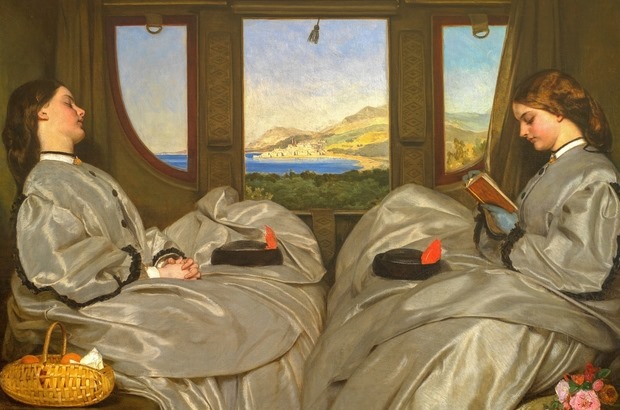JEAN WATT explores the performance of reading and social aspirations to appear ‘well-read’.
I am one book behind schedule on my 2020 Goodreads Reading Challenge. The app smugly informs me of this fact as I decide to give up half-way through a book I had stopped enjoying. I feel panicked. To get back on schedule I have to quickly read two books to ensure that I don’t fall even further behind. I eye up my bookshelf, trying to select something that’s not too long. My only consideration is the speed at which I can finish it. I ask myself if I have stopped choosing books for my own enjoyment. If reading isn’t for me anymore, then who is it for?
I downloaded Goodreads a few years ago. The app allows you to create reading lists, record books you’ve read, want to read and are reading. I’m a big reader when I get into the swing of it, but tend to go through periods of reading nothing. It felt like a good way to motivate myself to read and find books I would otherwise never have heard of. Your account asks you if you want to be connected to your Facebook and your phone contacts, automatically adding people as your friends. Initially this was interesting, seeing what other people were reading and getting inspired. It quickly became a way for me to feel better about myself, especially if I was reading something I considered to be particularly intellectual, famous, or renowned.
Over the last few months of lockdown, I have had the luxury of a lot more free time on my hands. This has meant much more time for reading, which sometimes I have done. However, a lot of this time I have spent feeling guilty that I could be reading when I’m not. This guilt is intensified as I keep one eye on my Goodreads app, watching Facebook friends check books off as ‘Read’ on my timeline. During the height of the Black Lives Matter resurgence, my Instagram was flooded with reading lists and book recommendations. These were hugely useful resources, which clearly had taken much time and effort to compile, from active, passionate people committed to sharing their knowledge. I re-posted one myself (before I had even read any of the books on the list). I then took the time to educate myself, reading Audre Lorde, Bernadine Evaristo, Frantz Fanon. These lists were (and are) useful, crucial reading, but I couldn’t help thinking that my hastiness in posting a list of recommendations was somewhat performative – demonstrating that I was doing the right thing before I had put the work in myself.
This led me to think more about the performance of reading. The dinner-table conversation that becomes a self-aggrandising love-in. A film recommendation becomes, “Oh, but have you read the book? No? Personally, I think it’s much better, I always try to read the book before watching the film”. This one-upping culture is underhand and pervasive, existing in the subtext of conversations. “I much prefer their earlier work… I don’t really watch TV…God, I read that years ago…” etc.,etc. The Booker Prize Winner pokes purposefully out of bags on the tube, and the overheard conversation at the neighbouring table in Pret turns to the non-fiction ‘it’ book of the moment. In short, reading books solely for the sake of telling other people that you have read it, or the smug affirmation of your own good taste. I hear myself recommend Arthur Schnitzler’s Dream Story, the 1926 Austrian novel which Stanley Kubrick’s Eyes Wide Shut is based on. I feel affirmed in my well-readness.
I wonder if part of this desire to be seen as well-read comes from a history of how men and women’s reading has been viewed differently. The reading woman is idle and leisurely, the reading man is intellectual and cultured. This, of course, comes from a long history of restrictions on women reading because of social anxieties surrounding oppressed groups acquiring ‘too much’ knowledge. As a result, the type of texts women were able to read (typically novels) were seen as less important. Today, I don’t think these ideas have completely disappeared. Just as the woman cooking is domestic but the man cooking is a masterchef, the woman reading is simply passing the time whilst the man reading is bettering himself. Books by women are still often only seen as for women, yet books by men are for everyone. I consider this as I slog through Don DeLillo and Roland Barthes, subconsciously thinking I appear more scholarly than when I am reading Charlotte Perkins Gilman or Muriel Spark. This performance of reading plays into existing power dynamics, affirming the superiority of men and women’s attempt to chase after them. Ultimately, it becomes another aspect to many women’s performed identity.
There is much that apps like Goodreads and the sharing of reading lists on social media has to offer. Without these platforms, there are books I would have never read. But as I sit here anxiously eyeing up the percentage bar which tells me how many books I have left to read this year, I feel saddened that the act of reading, something which can be so intimate and fulfilling, has become another part of my performed online identity. Maybe I’ll delete the app, but I probably won’t.
Featured image source: birminghammuseums.org.uk





